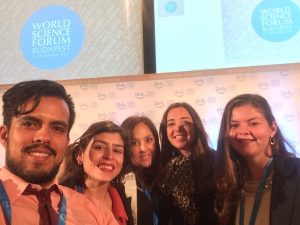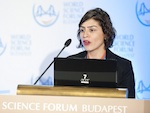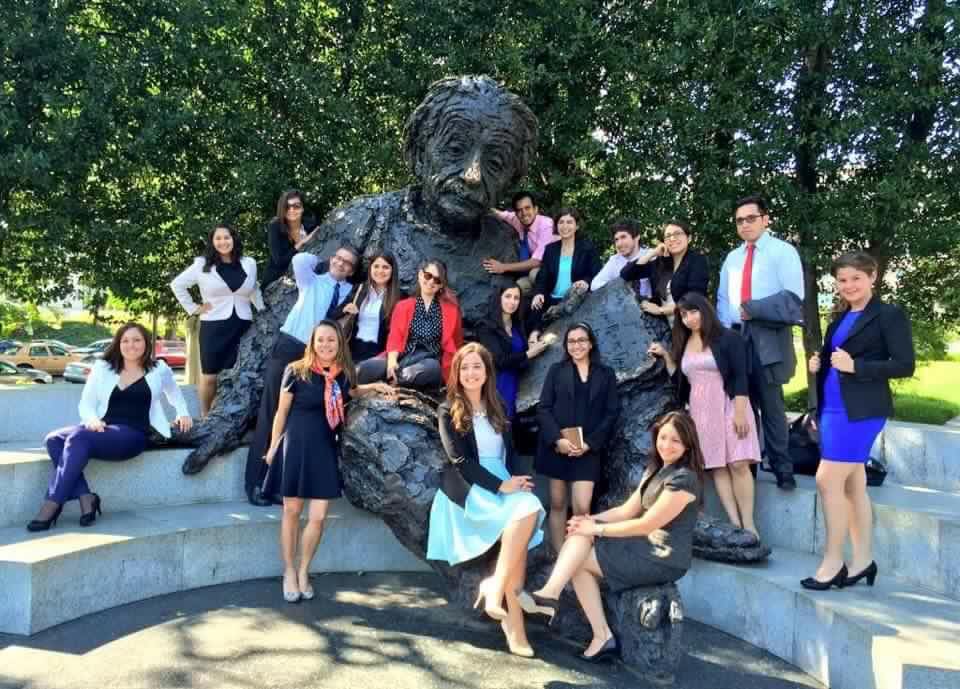New bridges for the exchange of knowledge
Maria Ines Carabajal is an Argentinean Anthropologist and PhD student at the University of Buenos Aires, with a scholarship from IAI CRN 3035.
My first contact with the IAI
After graduating in Anthropology in 2013, I got a PhD grant from an IAI project on Climate Services for the agriculture and water sectors (CRN 3035), which was recruiting social scientists for interdisciplinary and intersectoral research. My PhD focuses on the establishment of the Regional Climate Center (CRC-SAS) for the South of South America and the development of a platform for improving communication between users and producers of climate information. I am also interested in the links between science, policy, and society with an interdisciplinary approach.
US: Science Diplomacy Program
In 2015, I participated in the 1st Science Diplomacy and Leadership Program, an activity that was disseminated through the IAI social media. The course provided training on the use of leadership and academic tools to tackle problems that go beyond national boundaries and have scientific and technological implications (1st Science Diplomacy Program Participants Reports: http://cspo.org/report-from-the-inaugural-science-diplomacy-leadership-program-in-dc/). We also visited several governmental institutions such as NASA and the State Department to see science diplomacy in action.
 That course offered the opportunity to four Latin American participants to attend the World Science Forum 2015, in Budapest, Hungary. The idea was to give early career scientists a voice in this kind of events. Successful participants were selected by the group itself, I was one the four.
That course offered the opportunity to four Latin American participants to attend the World Science Forum 2015, in Budapest, Hungary. The idea was to give early career scientists a voice in this kind of events. Successful participants were selected by the group itself, I was one the four.
New Destination: Budapest
The World Science Forum gathered politicians, scientists, policy makers and civil society representatives to discuss the role of science and technology in facing major global challenges. I was invited to introduce the IAI Climate Services project and the challenges of co-producing interdisciplinary knowledge in the Plenary on Challenges and Global Cooperation.
I believe the advancement of science is linked to advances in technology and innovation. However, co-production of knowledge should also take into consideration cultural aspects and local knowledge. As scientists, we are responsible for creating inclusive spaces that will enhance the well-being of people.

This event was a tremendous personal experience. Besides enjoying beautiful Budapest, I was able to see the overwhelming power of networks in addressing complex global change challenges and improving communication across different sectors. Many doors have opened to me there, such as the collaborative activities we are planning with Forum participants. Thanks to the support of the IAI, IAP, WAYS, ICORSA and GYA, and the funding by UNESCO for making this possible.
________
For more details visit Young Scientist – WSF 2015 report: http://www.interacademies.net/News/28907.aspx


